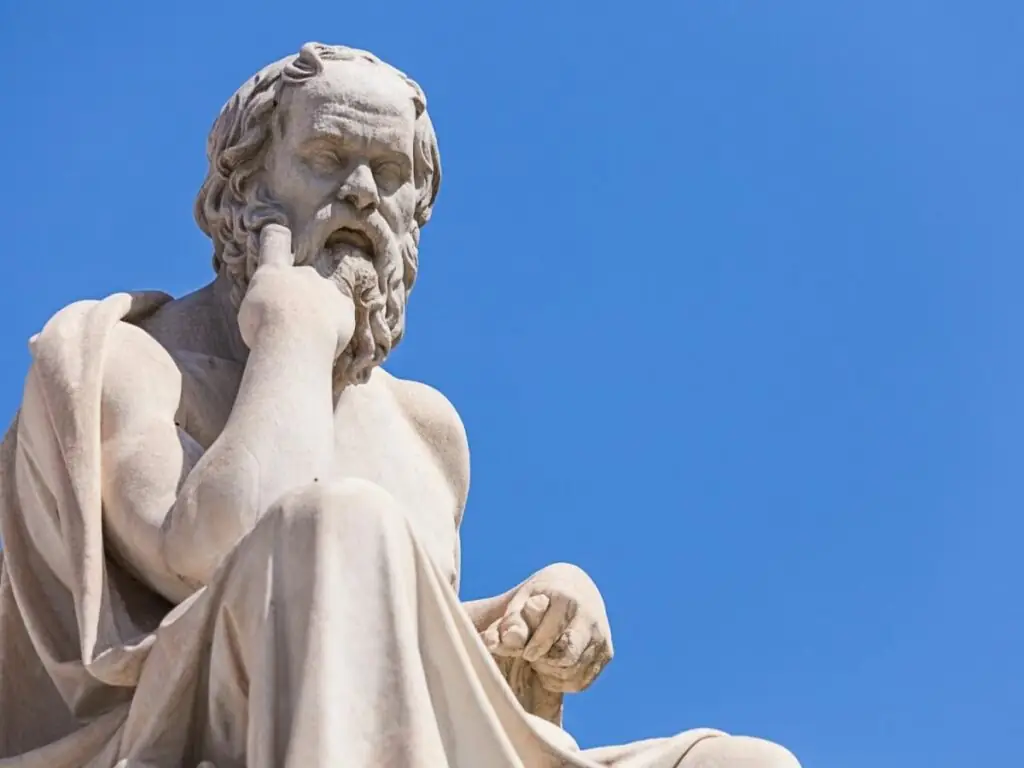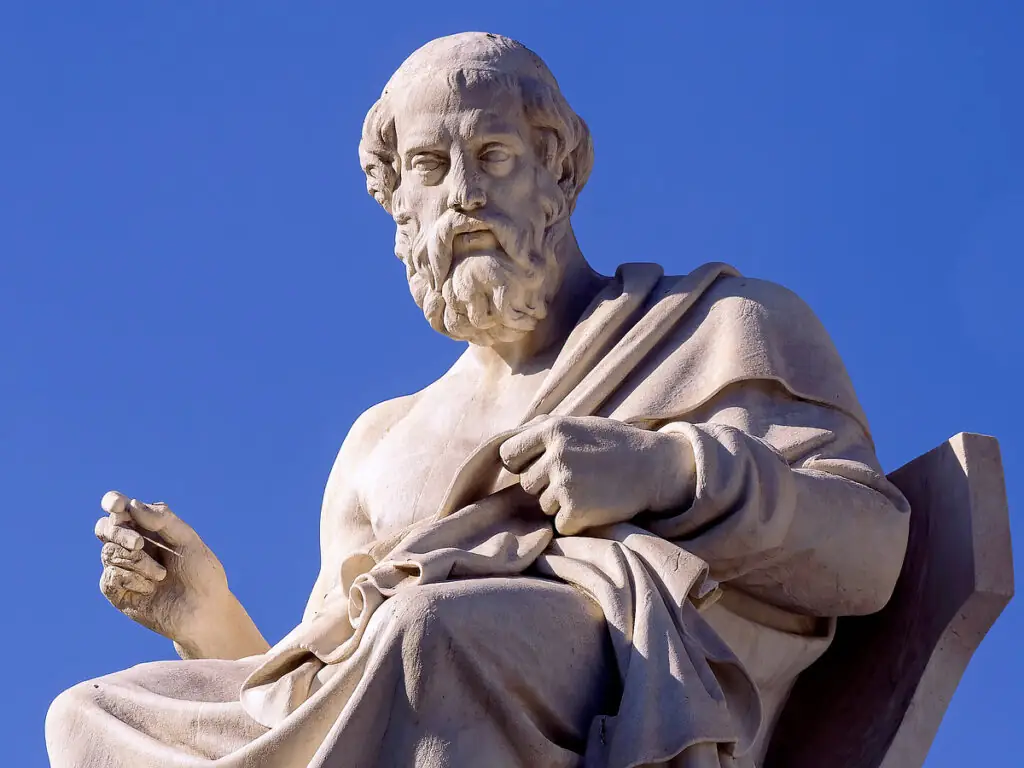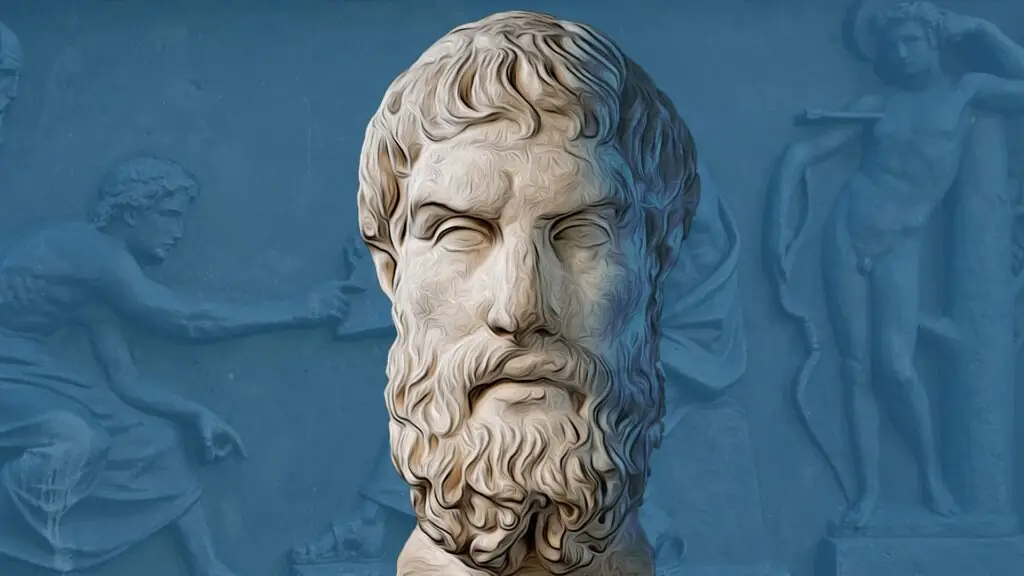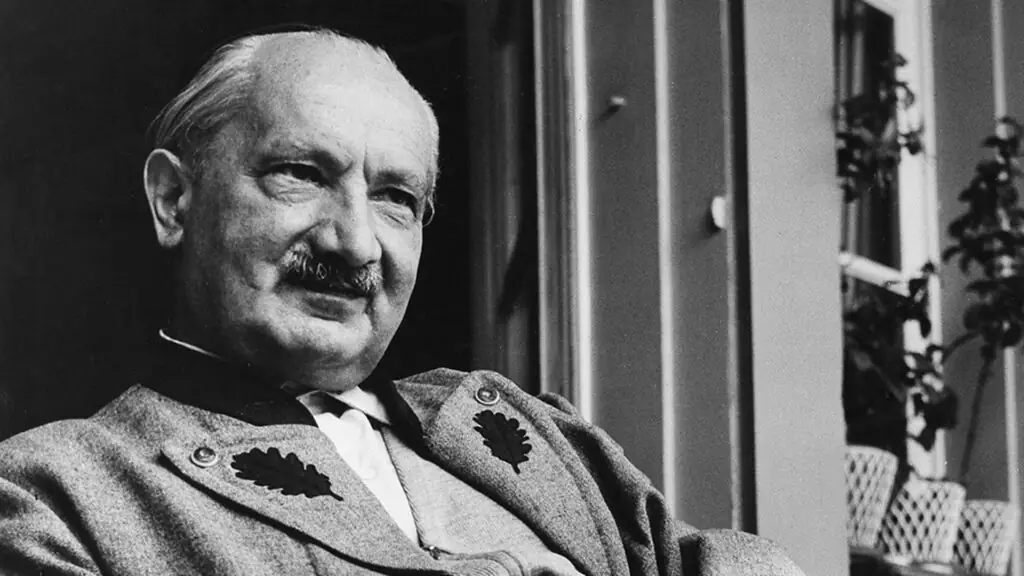Western philosophy is a complex and deep field of thought that has greatly influenced the intellectual scene in the Western world. It tackles questions about life, knowledge, values, the mind, and language. This article looks at some of the most significant Western philosophers: Socrates, Plato, Epicurus, René Descartes, Immanuel Kant, Friedrich Nietzsche, Ludwig Wittgenstein, and Martin Heidegger, examining their key ideas and their influence on both the field of philosophy and the world at large.

✅ AI Essay Writer ✅ AI Detector ✅ Plagchecker ✅ Paraphraser
✅ Summarizer ✅ Citation Generator
The Core of Western Philosophy
Western philosophy, originating in ancient Greece, is a profound testament to humanity’s pursuit of understanding through the disciplined use of reason, logic, and empirical investigation. This intellectual tradition is marked by a commitment to rational thinking, characterized by systematic argumentation and a reliance on observable evidence to discover truths about the world and our role in it.
Central to Western philosophy is the pursuit of knowledge, as epitomized by Socrates’ famous dictum, “The only true wisdom is in knowing you know nothing.” This statement, a rallying cry for philosophical inquiry, underscores the importance of acknowledging our limitations in understanding, thereby opening the door to continuous learning and questioning. Further, Western philosophy is marked by rigorous logical reasoning, as Aristotle, another towering figure of ancient Greek philosophy, demonstrated in his works. Aristotle’s foundational principles of logic, particularly his syllogistic reasoning, as outlined in “Organon,” laid the groundwork for future scientific and philosophical methods. He posited that through logical deduction, one could derive truths from established premises, a method that has profoundly influenced the Western intellectual tradition.
Moreover, Western philosophy deeply engages with the human condition, ethics, and the nature of reality. Immanuel Kant, a central figure in modern Western philosophy, addressed the nature of reality and the limits of human understanding in his critical philosophy. In “Critique of Pure Reason,” Kant famously stated, highlighting the interplay between our sensory experiences and our conceptual understanding.
“Thoughts without content are empty, intuitions without concepts are blind.”.
Ethical inquiry, another cornerstone of Western philosophy, involves a deep exploration of moral values and principles. This is well articulated in Kant’s “Groundwork of the Metaphysics of Morals,” where he introduces the concept of the categorical imperative:
“Act only according to that maxim whereby you can at the same time will that it should become a universal law.”
Socrates and the Self-Examined Life
Socrates, born circa 470 BC in Athens, Greece, stands as a foundational figure in the history of Western philosophy. A classical Greek philosopher, he is often considered one of the founders of Western ethical thought and philosophy. Unlike his predecessors who focused on physical theories, Socrates shifted the attention to ethics and the human character. Remarkably, Socrates himself never penned down his teachings; hence, our understanding of his philosophy and methods primarily comes from accounts by his students, notably Plato, and contemporaries like Xenophon.

Philosophical Views
Socrates is most renowned for his development of the Socratic method, a form of cooperative argumentative dialogue that stimulates critical thinking and illuminates ideas. This method, often conducted in public places in Athens, involved asking a series of questions to help a person or group discover their beliefs about some topic, seeking to expose contradictions and motivate refinement of thought.
Central to his philosophy was the concept of the self-examined life. Socrates famously declared, “The unexamined life is not worth living,” a statement recorded in Plato’s “Apology,” which encapsulates Socrates’ trial in 399 BC. This philosophy underlines the importance of self-awareness, personal growth, and moral integrity over blind adherence to societal norms. Socrates believed that understanding oneself was crucial to understanding the wider world.
He also placed a strong emphasis on ethics, arguing that personal ethics and morality were the cornerstones of a well-lived life. He often engaged in dialogues about concepts like justice, virtue, and piety, not just to define them but to understand their role in human life.
Influence
The influence of Socrates on Western philosophy is profound and enduring. His approach to philosophy and his methods of inquiry laid the foundation for what would later develop into dialectical reasoning. He significantly influenced his most famous student, Plato, who would carry on and expand his work. Through Plato, Socrates’ ideas became the bedrock of Western philosophical thought.
More than just a philosopher, Socrates is often seen as a martyr for free thought and the pursuit of knowledge. His trial and subsequent execution in 399 BC on charges of corrupting the youth of Athens and impiety underscored the conflict between the pursuit of truth and the powers of the status quo. This event, eloquently described in Plato’s dialogues “Apology,” “Crito,” and “Phaedo,” has been a subject of reflection and debate for centuries.
Plato and Forms
Plato (427 BC), a student of Socrates, was not just an Athenian philosopher but a pivotal figure in the development of Western philosophical thought. He founded the Academy in Athens, a beacon of learning and intellectual exploration in the ancient world.
Philosophical Views
Plato’s theory of forms is central to his philosophy. He posited that the physical world is not actually the ‘real’ world; instead, ultimate reality exists beyond our physical world. The forms, according to Plato, are abstract, perfect, unchangeable concepts or ideals that transcend time and space. In his famous work “The Republic,” Plato explains,
“The Forms are the only objects of study that can provide us with knowledge.”
This idea implies that the material world we perceive through our senses is only a shadow of this higher, truer reality. In his allegory of the cave, found in the same work, he illustrates this point vividly, describing prisoners who, seeing only shadows on a wall, take those shadows for reality. Plato also applied this theory to concepts like justice and beauty, arguing that they are not merely subjective but have an independent, ideal existence. In “Phaedo,” he asserts,
“There is such a thing as absolute beauty and goodness and size and so on.”

Influence
Plato’s theory of forms has had a profound influence on Western thought. His conceptualization of ideal forms laid the groundwork for discussions in metaphysics and epistemology. In ethics and political philosophy, his ideas have sparked debates about the nature of justice and the ideal state. Moreover, his Academy, as a model for future centers of learning, set a precedent for educational institutions that would follow. His work has been a cornerstone in the study of philosophy, influencing countless philosophers and thinkers throughout history.
Epicurus and the Pursuit of Pleasure
Epicurus, born in 341 BC on the island of Samos, Greece, was an ancient philosopher who later moved to Athens and founded his own school, known as the Garden, around 306 BC. He established Epicureanism during the Hellenistic period, a time of cultural and intellectual expansion in the Greek world following the conquests of Alexander the Great.

Philosophical Views
Epicurus’ philosophy centered around the attainment of a happy, tranquil life, which he believed was the ultimate goal of human existence. He introduced the concepts of ataraxia and aponia, meaning peace and freedom from fear, and the absence of pain, respectively. Unlike some contemporary interpretations, Epicurus’ idea of pleasure was not hedonistic in an indulgent sense. Instead, he advocated for the pursuit of intellectual and modest physical pleasures, emphasizing the enjoyment of simple life pleasures. He taught that pleasure and pain are the measures of what is good and evil; life should be lived to maximize pleasure and minimize pain. In his “Letter to Menoeceus,” Epicurus argues,
“When we say… that pleasure is the end and aim, we do not mean the pleasures of the prodigal or the pleasures of sensuality, as we are understood to do by some through ignorance, prejudice, or willful misrepresentation.”
Epicurus placed significant importance on friendship, considering it an essential source of happiness. He was also a materialist, believing everything in the universe consists of atoms and void, a view that anticipated aspects of modern science.
Influence
Epicurus and his philosophy profoundly influenced the development of scientific and rational thought. His teachings on a modest lifestyle focused on intellectual and simple pleasures, as well as his materialist worldview, resonated through the ages, influencing later philosophical schools and thinkers. Epicureanism offered a way of life and a philosophical framework that stood in contrast to the dominant philosophies of the time, like Stoicism and left a lasting impact on how pleasure and happiness are conceptualized in philosophical and ethical discussions.
Great Philosophers of the 17th through the 19th Centuries
The period spanning from the 17th to the 19th century marked a profound shift in thinking, led by groundbreaking philosophers like René Descartes, Immanuel Kant, and Friedrich Nietzsche. Each, in their own right, introduced ideas that would radically alter the landscape of philosophical thought.
René Descartes, born in France in 1596, is often hailed as the father of modern Western philosophy. His most famous declaration, “Cogito, ergo sum” (“I think, therefore I am”), found in his 1637 work “Discourse on the Method,” set a new course for philosophical inquiry. This simple yet profound idea—that one’s existence is confirmed through the act of thinking—laid the foundational stone for 17th-century continental rationalism and influenced the development of modern subjectivity in philosophy. Descartes’ emphasis on doubt and systematic skepticism as a means to obtain certainty was a major departure from the traditional Aristotelian scholasticism prevalent in his time and led to a more empirical and individualistic approach to knowledge and understanding.
A century later, Immanuel Kant, born in Königsberg, Prussia in 1724, further revolutionized philosophical thought. Kant’s moral theory, particularly his concept of the categorical imperative, is a cornerstone of his critical philosophy. In his influential 1785 work, “Groundwork of the Metaphysics of Morals,” Kant proposed that people should be treated as ends in themselves and not as means to an end, a principle that significantly contributed to the modern concept of human rights and personal autonomy. His work marks a significant shift towards deontological ethics, where the morality of an action is judged based on the action’s adherence to rules or duties.
The late 19th century witnessed another paradigm shift with Friedrich Nietzsche, a German philosopher born in 1844. Nietzsche’s radical ideas, including the concept of the Übermensch (Overman) and the provocative declaration of the “death of God,” as articulated in his 1882 book “The Gay Science,” challenged the existing moral and philosophical structures. His philosophy, which emphasized the importance of individualism and self-overcoming, laid the groundwork for existentialism and postmodernism. Nietzsche critiqued the foundational tenets of traditional morality and religion, advocating for a reevaluation of values and the embrace of life’s inherent struggles to cultivate strength and individualism.

Together, these thinkers—Descartes with his methodological skepticism, Kant with his moral imperatives, and Nietzsche with his radical reevaluation of values—forged new paths in understanding the nature of human existence, knowledge, ethics, and reality. Their contributions not only reflect the evolving nature of Western philosophical thought but also continue to influence contemporary discussions and debates in philosophy and beyond.
Western Philosophers of the 20th Century
The philosophical landscape of the 20th century was profoundly shaped by two towering figures: Ludwig Wittgenstein and Martin Heidegger. Their groundbreaking work in language, mind, existence, and phenomenology significantly altered the course of philosophical thought during this era.

Ludwig Wittgenstein, an Austrian-British philosopher born in 1889, emerged as a central figure in analytic philosophy. His early work, “Tractatus Logico-Philosophicus,” published in 1921, delved into the relationship between language and reality, proposing that the structure of language mirrors the structure of reality. This work, characterized by its concise and aphoristic style, profoundly influenced the philosophical study of language and logic. However, Wittgenstein’s later work, most notably “Philosophical Investigations,” which was published posthumously in 1953, marked a significant departure from his earlier thoughts. In this later phase, he critiqued his earlier ideas and developed new insights about the nature of language, thought, and meaning. His concept of language games and the idea that the meaning of words is derived from their use in language were revolutionary, deeply influencing the philosophy of language and mind.
On the other side of the philosophical spectrum, Martin Heidegger, a German philosopher born in 1889, reshaped existentialism and phenomenology. Heidegger’s seminal work, “Being and Time,” published in 1927, introduced an intricate analysis of existence and being. He explored the concept of Dasein (a term he used to describe the experience of being that is peculiar to human beings) and emphasized the importance of ‘being in the world.’ His work diverged from traditional metaphysical inquiries and instead focused on the existential conditions of human existence, time, and consciousness. Heidegger’s philosophy also delved into the nature of art, language, and technology, examining how they relate to the human experience of being.

Both Wittgenstein and Heidegger, despite their different philosophical orientations, shared a common thread in their attempt to grapple with complex and abstract concepts such as language, existence, and being. Their work not only marked a significant departure from traditional philosophical inquiries but also laid the groundwork for various subsequent philosophical movements, including postmodernism, existentialism, and the linguistic turn in philosophy. Their contributions profoundly influenced the way 20th-century thinkers approached questions about human existence, language, and the nature of thought, leaving an indelible mark on the philosophical landscape.
The Influence of Western Philosophy on the Modern Philosophical Field
The legacy of Western philosophy lies in its lasting impact on how we consider ethics, existence, and our role in the universe. Stretching from ancient Greece to the present, these philosophers have shaped academic discussion and influenced our view and engagement with the world, emphasizing the significance of inquiry, critical thinking, and the quest for wisdom.
FAQ
Follow us on Reddit for more insights and updates.







Comments (0)
Welcome to A*Help comments!
We’re all about debate and discussion at A*Help.
We value the diverse opinions of users, so you may find points of view that you don’t agree with. And that’s cool. However, there are certain things we’re not OK with: attempts to manipulate our data in any way, for example, or the posting of discriminative, offensive, hateful, or disparaging material.